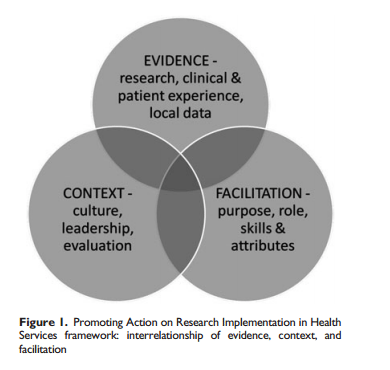Promoting consultation recording practice in oncology: identification of critical implementation factors and determination of patient benefit.

Psychooncology. 2013 Jun;22(6):1273-82. doi: 10.1002/pon.3135. Epub 2012 Jul 23.
Hack TF1, Ruether JD, Weir LM, Grenier D, Degner LF.
Abstract
OBJECTIVE:
The objectives of this implementation study were to (i) address the evidentiary, contextual, and facilitative mechanisms that serve to retard or promote the transfer and uptake of consultation recording use in oncology practice and (ii) follow patients during the first few days following receipt of the consultation recording to document, from the patient‘s perspective, the benefits realized from listening to the recording.
METHODS:
Nine medical and nine radiation oncologists from cancer centers in three Canadian cities (Calgary, Vancouver, and Winnipeg) recorded their primary consultations for 228 patients newly diagnosed with breast (n = 174) or prostate cancer (n = 54). The Digital Recording Use Semi-Structured Interview was conducted at 2 days and 1 week postconsultation. Each oncologist was provided a feedback letter summarizing the consultation recording benefits reported by their patients.
RESULTS:
Sixty-nine percent of patients listened to at least a portion of the recording within the first week following the consultation. Consultation recording favorableness ratings were high: 93.6% rated the intervention between 75 and 100 on a 100-point scale. Four main areas of benefit were reported: (i) anxiety reduction; (ii) enhanced retention of information; (iii) better informed decision making; and (iv) improved communication with family members. Eight fundamental components of successful implementation of consultation recording practice were identified.
CONCLUSIONS:
Further randomized trials are recommended, using standardized measures of the patient-reported benefit outcomes reported herein, to strengthen the evidence base for consultation recording use in oncology practice.
